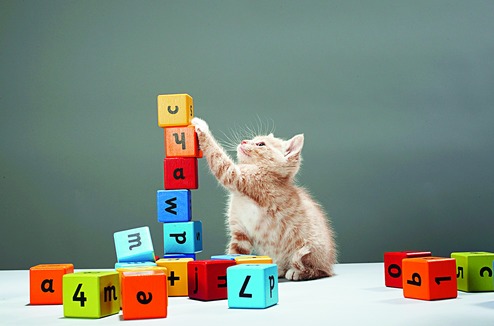
New Delhi: The National Council of Educational Research and Training has developed a module to make the teaching of mathematics more playful and exploratory in nursery and primary classes.
It has come up with guidelines for teachers on how to teach numeric and spatial skills to very young children, and prepared learning kits with toys, play money, number cards, shapes, and cut-outs for children up to Class V.
These materials have been circulated among the State Councils for Educational Research and Training in the hope that the state governments would adopt them for their schools.
"All these materials and learning kits are aimed at encouraging the learning of numbers and spatial concepts through activity. The material has been designed to develop creative and critical thinking among children," said Anup Kumar Rajput, head of the department of elementary education at the NCERT.
Rajput said the National Curriculum Framework that the council had prepared in 2005, providing guidelines for school curricula and textbooks, too had stressed activity-based teaching.
Till now, these concepts had remained in the form of general directions in the textbooks. The guidelines for teachers and the learning kits were developed recently under an Early School Mathematics Programme (ESMP).
The idea is to help the children learn with the help of concrete objects and develop their language skills so that they can express this learning experience in words.
The ESMP also prescribes the use of pictures to explain concepts. Eventually, the children are to be introduced to physical objects shaped like the number symbols.
Several educationists endorsed the idea of activity-based teaching of mathematics although they said they were unaware of the NCERT's latest guidelines and kits.
Former NCERT director J.S. Rajput said Rabindranath Tagore and Sri Aurobindo had emphasised that a teacher should only be a guide. "Activity-based leaning facilitates this," he said.
Anita Rampal, a professor at the department of education in Delhi University, said activities are the best way to learn about numbers.
"The concept of 'number' is abstract. Just making the children memorise the names of numbers does not mean they understand the numbers," Rampal said.
"A child can understand 'two stones' or 'three friends' by relating to concrete entities but it's very difficult for the young child to jump from concrete entities to the abstract idea of 'two' or 'three'. Our schools do not recognise that the child needs support to make the leap to the abstract concept."
She said: "What the child needs is to play, explore, manipulate and arrange objects to relate the number-names to the number-concepts and make sense of the relationships and patterns she can observe."
Birendra Nayak, who taught mathematics in Utkal University, said that developing children's logical ability was key to the teaching of mathematics.
He cited an experiment by L.P. Benezet in 1929 in Britain, which saw pupils abandon any instruction in arithmetic till the seventh grade and only concentrate on reading, reasoning and reciting. Later, when arithmetic was taught to them, they had no problem with the subject.
Last year, the NCERT conducted a National Achievement Survey across states to assess the skills of Class III, V and VIII students in mathematics, environment studies and language. It found a widespread fear of mathematics among the children.
The human resource development ministry has set up a committee with the mandate to suggest how mathematics can be made easier for schoolchildren.










